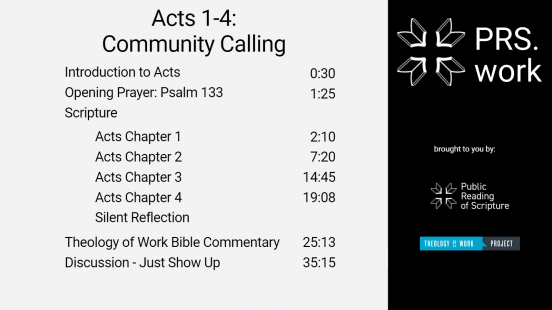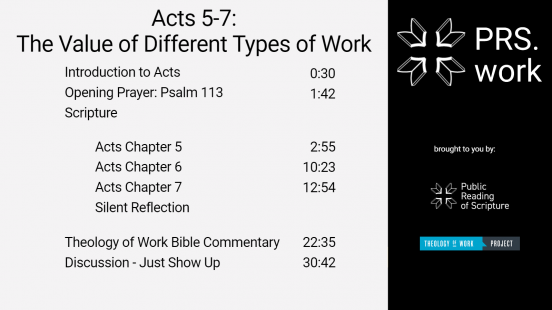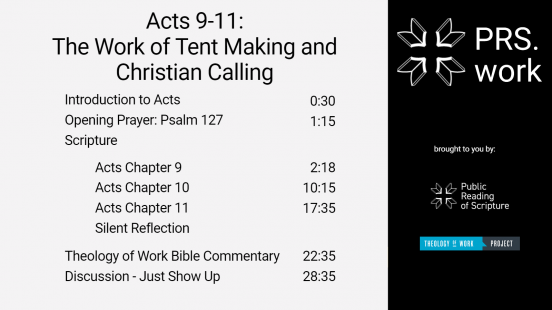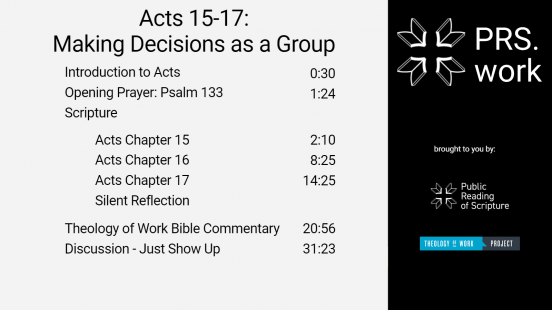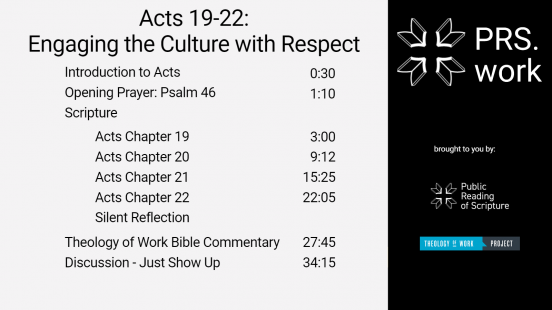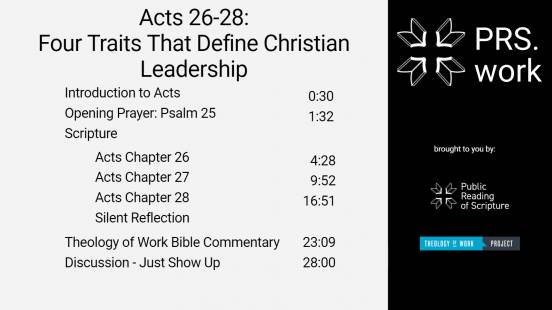Acts Series
Learn how many gifts work together in community.
Acts Chapters 1-4: Community Calling (35 minutes)
The Acts of the Apostles depicts the early church working hard to grow itself and serve others in the face of opposition, shortages of people and money, government bureaucracy, internal strife, and even the forces of nature. Their work shows similarities to what Christians face in non-church-related workplaces today.
Acts Chapters 5-7: The Value of Different Types of Work (31 minutes)
The first intra-group dispute in the early Christian community occurs between the Greek-speaking Jews who have returned to Jerusalem from one of the many Diaspora communities in the Roman Empire, and the Hebrews from the historic land of Israel. It takes very little social imagination to see what is happening in this situation. In a community that sees itself as the fulfillment of Israel’s covenant with God, members who are more prototypically Israelite are receiving more of the group’s resources than the others. This sort of situation happens regularly in our world.
Acts Chapters 9-11: The Work of Tent Making and Christian Calling (29 minutes)
Paul’s identity fundamentally changes when he encounters the risen Jesus on the road to Damascus. When he meets Jesus, Pauls’ world is turned upside down.
Acts Chapters 15-17: Making Decisions as a Group (32 minutes)
Acts 13:1-3 shows the Christian community trying to discern how the Spirit is leading them toward witness. Paul and Barnabas are singled out to work as traveling evangelists and healers. What is remarkable is that this discernment is accomplished communally. The Christian community, rather than the individual, is best able to discern the vocations of its individual members.
Acts Chapters 17-19: Engaging the Culture with Respect (23 minutes)
In the latter half of Acts, Paul, his companions, and various Christian communities come into conflict with those who wield local economic and civic power. After run-ins with the men and women of Antioch, Iconium, Philippi, and Thessalonica, Paul comes into conflict with the silversmiths’ guild of Ephesians. The conflicts culminate with Paul’s trial for disturbing the peace in Jerusalem, which occupies the final eight chapters of Acts.
Acts Chapters 26-28: Four Traits That Define Christian Leadership (28 minutes)
Acts chapters 26-28 contains one of the Bible’s most stirring demonstrations of leadership. Paul’s courage, suffering, respect, and concern for others remain as much of an example for us today as they did when these chapters were written.

